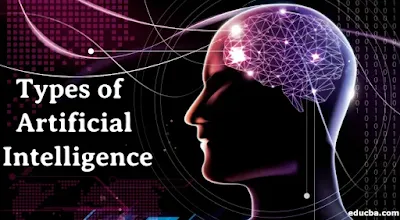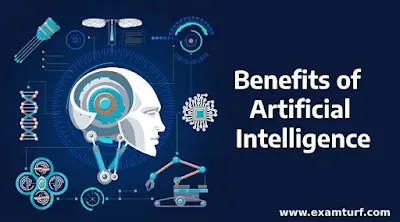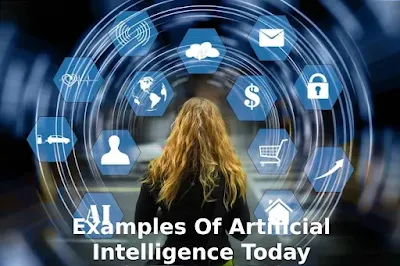"Tomorrow's Tapestry: Unveiling the Canvas of AI Future Trends."
Artificial Intelligence (AI): A Comprehensive Overview
Artificial Intelligence (AI) has emerged as a groundbreaking technology, reshaping industries and societies worldwide. From powering virtual assistants to enabling autonomous vehicles, AI's capabilities continue to expand, impacting every facet of our lives. This overview provides a concise exploration of AI, from its foundational concepts to its contemporary applications and ethical considerations. By offering a glimpse into the transformative potential of AI, this introduction sets the stage for a deeper dive into this dynamic field.
What is artificial intelligence?
Artificial Intelligence (AI) is the development of computer systems capable of performing tasks that typically require human intelligence, such as understanding natural language, recognizing patterns, making decisions, and learning from experience.
Types of artificial intelligence
Artificial Intelligence (AI) can be broadly classified into two types:
1. Narrow AI (Weak AI):
Narrow AI, also known as Weak AI, refers to AI systems that are designed and trained for a specific task or a narrow range of tasks. These systems excel at performing well-defined tasks within a limited domain. Examples of narrow AI include virtual assistants like Siri and Alexa, recommendation systems used by streaming services, and image recognition algorithms.
2. General AI (Strong AI):
General AI, also known as Strong AI or Artificial General Intelligence (AGI), refers to AI systems that possess the ability to understand, learn, and apply intelligence across a wide range of tasks, similar to human intelligence. Unlike narrow AI, which is focused on specific tasks, general AI aims to exhibit human-like intelligence and versatility. Achieving true general AI remains a long-term goal of AI research and development.
Benefits of Artificial Intelligence
AI offers numerous benefits across various domains:
1. Efficiency: AI automates repetitive tasks, leading to increased efficiency and productivity in industries such as manufacturing, healthcare, and finance.
2. Decision Making: AI systems can analyze large datasets quickly and make data-driven decisions, helping businesses and organizations optimize operations and strategies.
3. Personalization: AI enables personalized experiences in fields like e-commerce, entertainment, and healthcare, tailoring recommendations and services to individual preferences and needs.
4. Prediction and Forecasting: AI algorithms can analyze historical data to make predictions and forecasts in areas such as weather forecasting, financial markets, and risk management.
Improved Healthcare: AI facilitates medical diagnosis, drug discovery, personalized treatment plans, and remote patient monitoring, enhancing healthcare outcomes and accessibility.
5. Improved Healthcare: AI facilitates medical diagnosis, drug discovery, personalized treatment plans, and remote patient monitoring, enhancing healthcare outcomes and accessibility.
6. Enhancing Safety: AI-powered systems contribute to improving safety and security through applications such as surveillance, fraud detection, and autonomous vehicles.
7. Innovation: AI fosters innovation by enabling the development of new products, services, and solutions across industries, driving economic growth and competitiveness.
8. Accessibility: AI technologies can assist individuals with disabilities, providing solutions for communication, mobility, and accessibility in daily life.
Artificial Intelligence Examples
Certainly! Here are some examples of artificial intelligence applications in today's generation:
Smartphones and Virtual Assistants: AI-powered virtual assistants like Siri, Google Assistant, and Bixby are integrated into smartphones, providing users with voice-activated assistance for tasks such as setting reminders, sending messages, and searching the web.
Social media: Social media platforms employ AI algorithms for content moderation, personalized content recommendations, and targeted advertising. AI analyzes user behavior and preferences to deliver relevant content and advertisements to individual users.
E-commerce and Recommendation Systems: Online retailers utilize AI-powered recommendation systems to suggest products to customers based on their browsing and purchase history. These systems enhance user experience and drive sales by offering personalized recommendations.
Healthcare Chatbots and Telemedicine: AI-driven chatbots are used in healthcare for patient triage, appointment scheduling, and providing medical advice. Telemedicine platforms leverage AI algorithms for remote diagnosis, monitoring, and treatment planning.
Autonomous Vehicles: Companies like Tesla, Waymo, and Uber are developing autonomous vehicle technology powered by AI for self-driving cars. These vehicles use sensors, cameras, and AI algorithms to perceive the environment and make driving decisions.
Language Translation: AI-based language translation services like Google Translate and Microsoft Translator enable users to translate text and speech between different languages in real-time. These services facilitate cross-lingual communication and language learning.
Smart Home Devices: AI-powered smart home devices, such as smart speakers, thermostats, and security cameras, automate household tasks and adapt to users' preferences. These devices enhance convenience, comfort, and security in the home.
Financial Services and Fraud Detection: Banks and financial institutions employ AI algorithms for fraud detection, risk assessment, and personalized financial services. AI analyzes transaction data to identify suspicious activities and prevent fraudulent transactions.
%20111.webp)
%20222222.webp)






Comments
Post a Comment